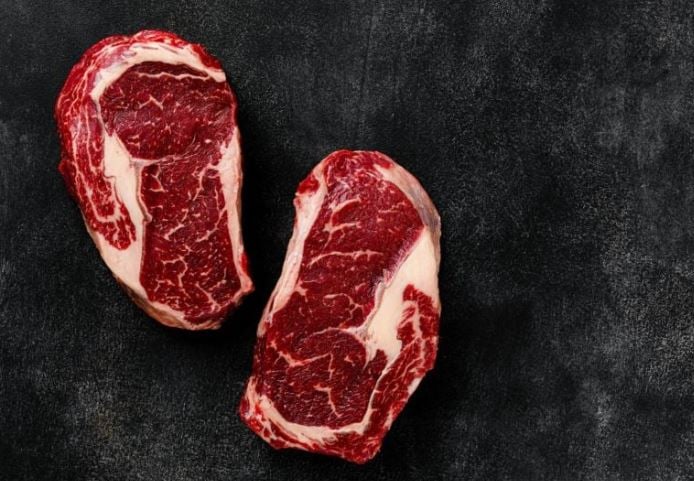Eating foods rich in animal protein is not linked to higher mortality and may even help reduce cancer deaths, according to research published in the Journal of Applied Physiology, Nutrition and Metabolism.
Analysis of nearly 16,000 adults
The study was based on data from nearly 16,000 adults aged 19 and older who participated in the National Health and Nutrition Examination Survey (NHANES III). Scientists analyzed how much animal and plant protein participants consumed and compared these eating patterns with their risk of death from cancer, heart disease, or other causes.
New research challenges long-held assumptions about protein, finding that eating animal protein sources is not linked to higher mortality. Source: Stock
The results showed no evidence that eating more animal protein increased the risk of death. On the contrary, the data showed a small but notable reduction in cancer mortality in the group consuming more animal protein.
Professor Stuart Phillips, Head of the Department of Kinesiology at McMaster University, Canada, and supervisor of the study, emphasized:
“There is a lot of confusion around protein – how much to eat, what types to eat, and what the long-term effects are. This study provides much-needed clarity, helping people make informed decisions based on scientific evidence.”
Rigorous research methods
To ensure accurate results, the team applied advanced statistical methods, including the US National Cancer Institute (NCI) analysis method and multivariate Markov Chain Monte Carlo (MCMC) modeling. These techniques allow for more accurate estimates of long-term protein intake while minimizing measurement error.
“The analysis must be done using the most rigorous and standardized methods,” explains Phillips. “These methods help to account for daily variations in diet and reflect a more accurate picture of long-term nutritional habits.”
The study results showed no significant association between total protein, animal protein, or plant protein intake and the risk of death from all causes, cardiovascular disease, or cancer. When both plant and animal protein were included in the analysis, the results remained the same: plant protein had a minimal impact on the risk of death from cancer, while animal protein may have a small protective effect.
Significance to public health
While observational studies cannot directly prove cause and effect, they provide important evidence about dietary patterns in large populations. Combined with data from clinical trials spanning decades, these results support the view that animal protein can absolutely be part of a healthy diet.
Principal investigator Yanni Papanikolaou, MPH, President of Nutritional Strategies, emphasized:
“When we look at both observational and clinical trial data, it is clear that protein-rich foods – both animal and plant-based – contribute to health and longevity.”
La Khe (According to SciTech Daily)
Source: https://doanhnghiepvn.vn/cong-nghe/nghien-cuu-bat-ngo-thit-co-the-giup-giam-nguy-co-tu-vong-do-ung-thu/20250824075408545







![[Photo] Discover unique experiences at the first World Cultural Festival](https://vphoto.vietnam.vn/thumb/1200x675/vietnam/resource/IMAGE/2025/10/11/1760198064937_le-hoi-van-hoa-4199-3623-jpg.webp)






























![[Photo] General Secretary attends the parade to celebrate the 80th anniversary of the founding of the Korean Workers' Party](https://vphoto.vietnam.vn/thumb/1200x675/vietnam/resource/IMAGE/2025/10/11/1760150039564_vna-potal-tong-bi-thu-du-le-duyet-binh-ky-niem-80-nam-thanh-lap-dang-lao-dong-trieu-tien-8331994-jpg.webp)





































































Comment (0)